The inspiration for today’s article was some research I was doing on thyroid gland disorder symptoms. The information I reviewed impressed me as a great example of how profoundly interwoven our body systems are. There is a strong tendency in th e medical system to compartmentalize and segregate each of the body’s systems as though they are completely separate from each other. Nothing could be further from the truth. But no one likes just how complex the body is. So the chosen answer to this is to pretend it is not complex and create specialists that deal with only one subsystem at a time. e medical system to compartmentalize and segregate each of the body’s systems as though they are completely separate from each other. Nothing could be further from the truth. But no one likes just how complex the body is. So the chosen answer to this is to pretend it is not complex and create specialists that deal with only one subsystem at a time.
In terms of skill development, specialization has its benefits. When you break a hip, it is nice to go to a surgeon that has already done a thousand hip surgeries. But the degre e of specialization has gotten over the top. Ellen got referred recently to a specialist who deals only with eyelids. Other specialists deal with the lens of the eye, and still others deal only with the back of the eye. When it comes to surgical technique, specialists are great, but when it comes to diagnosis, you need to have a much broader view. Every part of the body affects every other part. A proper diagnosis needs to function with this understanding. e of specialization has gotten over the top. Ellen got referred recently to a specialist who deals only with eyelids. Other specialists deal with the lens of the eye, and still others deal only with the back of the eye. When it comes to surgical technique, specialists are great, but when it comes to diagnosis, you need to have a much broader view. Every part of the body affects every other part. A proper diagnosis needs to function with this understanding.
So when doctors look at a problem like a sluggish thy roid, they have a few simple lab tests to check things out. But patients don’t walk in the door with a sign on their chests saying that they have a sluggish thyroid. They walk in with symptoms. They might complain of : roid, they have a few simple lab tests to check things out. But patients don’t walk in the door with a sign on their chests saying that they have a sluggish thyroid. They walk in with symptoms. They might complain of :
constipation
tiredness
dry skin
weight gain
depression
brain fog
muscle cramps
These could be symptoms of dozens of conditions. Tiredness usually accompanies weight gain, just as brain fog usua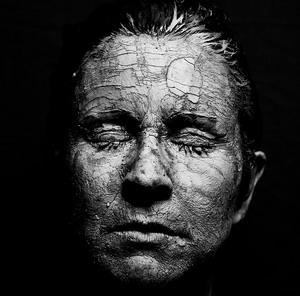 lly goes with depression. Muscle cramps might make you think of an electrolyte problem, so possibly a kidney problem. The dry skin is interesting. Initially, you think a dietary problem with fats, but that is usually associated with loose stools. You notice they are wearing a sweater even though it is warm outside, so you ask them if they feel cold all the time. Okay, now, dry skin and feeling cold suggest a slow metabolism. That fits the tiredness, weight gain, constipation, and brain fog. Now you start thinking something might be off with their thyroid since it is the pilot light for metabolism in the body. The next step is to order lab tests. lly goes with depression. Muscle cramps might make you think of an electrolyte problem, so possibly a kidney problem. The dry skin is interesting. Initially, you think a dietary problem with fats, but that is usually associated with loose stools. You notice they are wearing a sweater even though it is warm outside, so you ask them if they feel cold all the time. Okay, now, dry skin and feeling cold suggest a slow metabolism. That fits the tiredness, weight gain, constipation, and brain fog. Now you start thinking something might be off with their thyroid since it is the pilot light for metabolism in the body. The next step is to order lab tests.
But here is the thing about patients: they usually don’t show up with the nice classic list of symptoms that fit a particular condition. Their slowed metabolism might show up as a slowed heart rate or shortness of breath when exercising. This would lead you to check for heart problems or lung issues. The slow metabolism might show up as sluggish reflexes and slowed speech and movement. Their muscles might be both tight but weak. This would take you down the brain degeneration rabbit hole looking for something like Parkinson’s. Couple this with the brain fog, and you really start looking for brain issues. The brain fog itself might show up as memory problems, poor focus, confusion, feeling spaced out, or difficulty thinking. These could all be sure signs of brain degeneration, or it could be an underactive thyroid gland. condition. Their slowed metabolism might show up as a slowed heart rate or shortness of breath when exercising. This would lead you to check for heart problems or lung issues. The slow metabolism might show up as sluggish reflexes and slowed speech and movement. Their muscles might be both tight but weak. This would take you down the brain degeneration rabbit hole looking for something like Parkinson’s. Couple this with the brain fog, and you really start looking for brain issues. The brain fog itself might show up as memory problems, poor focus, confusion, feeling spaced out, or difficulty thinking. These could all be sure signs of brain degeneration, or it could be an underactive thyroid gland.
For some women, the first sign of a low thyroid is eith er missed or overly frequent periods. Repeated miscarriages or an inability to conceive can be another sign of a problem thyroid. Even heavy bleeding during periods is another thyroid sign. How many doctors are going to think thyroid with any of those symptoms? Often clumped in with this set of uterine issues, doctors will be looking for signs of psychiatric problems. Apathy and a lack of interest in personal relationships are red flags for mental issues, but they are also signs of a low thyroid. Curiously, anxiety and irritability can also be signs of a thyroid problem. How many women are put on SSRIs or anxiety meds for what is really a thyroid problem? er missed or overly frequent periods. Repeated miscarriages or an inability to conceive can be another sign of a problem thyroid. Even heavy bleeding during periods is another thyroid sign. How many doctors are going to think thyroid with any of those symptoms? Often clumped in with this set of uterine issues, doctors will be looking for signs of psychiatric problems. Apathy and a lack of interest in personal relationships are red flags for mental issues, but they are also signs of a low thyroid. Curiously, anxiety and irritability can also be signs of a thyroid problem. How many women are put on SSRIs or anxiety meds for what is really a thyroid problem?
Thyroid hormone is vital for the proper functioning of our nerves. Low thyroid can be responsible for peripheral neuropathy, that pins-and-needles feeling in the feet. This same nerve dysfunction can show up as carpal tunnel nerve issues in the hands. I often see these folks after they have had carpal tunnel surgery, and the problem did not get any better. It can also cause your skin to become hypersensitive to touch or temperature. Loss of nerve function can cause muscle weakness. Weirdly, low thyroid can cause you to have high cholesterol problems and even anemia. nerves. Low thyroid can be responsible for peripheral neuropathy, that pins-and-needles feeling in the feet. This same nerve dysfunction can show up as carpal tunnel nerve issues in the hands. I often see these folks after they have had carpal tunnel surgery, and the problem did not get any better. It can also cause your skin to become hypersensitive to touch or temperature. Loss of nerve function can cause muscle weakness. Weirdly, low thyroid can cause you to have high cholesterol problems and even anemia.
Some symptoms are more easily associated with thyro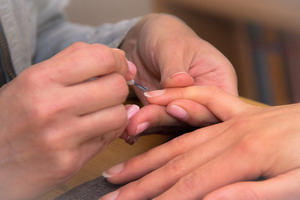 id conditions, particularly those in the hair, nails, and skin. Thyroid issues tend to produce dry, brittle hair, which frequently results in hair loss. Of classic note is the loss of the outer third of the eyebrows. Nails are often thin, brittle, and dull. The patient’s skin looks doughy or thick, pale, and cool – often puffy in the face, eyes, and hands. Sometimes the patient will proudly boast how they don’t sweat. That is not a good thing. Thyroid hormone is what tells the body tissues to produce the energy to do what that particular tissue needs to do to stay healthy. Without that hormone, things just look sickly. id conditions, particularly those in the hair, nails, and skin. Thyroid issues tend to produce dry, brittle hair, which frequently results in hair loss. Of classic note is the loss of the outer third of the eyebrows. Nails are often thin, brittle, and dull. The patient’s skin looks doughy or thick, pale, and cool – often puffy in the face, eyes, and hands. Sometimes the patient will proudly boast how they don’t sweat. That is not a good thing. Thyroid hormone is what tells the body tissues to produce the energy to do what that particular tissue needs to do to stay healthy. Without that hormone, things just look sickly.
When things get serious with very low thyroid hormone levels, we might find everything winding down, so the patie nt might have slow breathing, low blood pressure, low blood sugar, unresponsiveness to stimuli, and odd mood changes. The juice just isn’t there to get things going. nt might have slow breathing, low blood pressure, low blood sugar, unresponsiveness to stimuli, and odd mood changes. The juice just isn’t there to get things going.
These symptoms so far have just been for low thyroid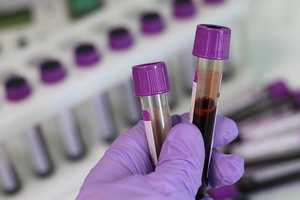 conditions. Very different symptoms will show up with hyperthyroidism, and even stranger, variable symptoms with Hashimoto’s thyroiditis, the autoimmune thyroid disease. (Many experts now believe that the majority of thyroid conditions are autoimmune in nature.) Most of the time, these thyroid disease conditions are missed when medical doctors do lab work to check your thyroid. This is because the main test they do is called a TSH test – Thyroid Stimulating Hormone test. This is actually a pituitary hormone test, not a thyroid test. TSH levels go up and down opposite to your average levels of the thyroid hormone T4. Unfortunately, the hormone T4 is not the active form of thyroid hormone. T3 is the active form. Many forms of thyroid hormone dysfunction will have normal levels of T4, but not enough of the good stuff, the T3. Similarly, a TSH test does not test for autoimmune thyroiditis. A proper lab evaluation of your thyroid requires 7 different tests. Check TSH, T4, Free T4, T3, reverse T3, thyroglobulin antibody(Tg), and thyroid peroxidase antibody (TPO). With these tests, we can diagnose most thyroid conditions. conditions. Very different symptoms will show up with hyperthyroidism, and even stranger, variable symptoms with Hashimoto’s thyroiditis, the autoimmune thyroid disease. (Many experts now believe that the majority of thyroid conditions are autoimmune in nature.) Most of the time, these thyroid disease conditions are missed when medical doctors do lab work to check your thyroid. This is because the main test they do is called a TSH test – Thyroid Stimulating Hormone test. This is actually a pituitary hormone test, not a thyroid test. TSH levels go up and down opposite to your average levels of the thyroid hormone T4. Unfortunately, the hormone T4 is not the active form of thyroid hormone. T3 is the active form. Many forms of thyroid hormone dysfunction will have normal levels of T4, but not enough of the good stuff, the T3. Similarly, a TSH test does not test for autoimmune thyroiditis. A proper lab evaluation of your thyroid requires 7 different tests. Check TSH, T4, Free T4, T3, reverse T3, thyroglobulin antibody(Tg), and thyroid peroxidase antibody (TPO). With these tests, we can diagnose most thyroid conditions.
The problem is that each patient will have different ar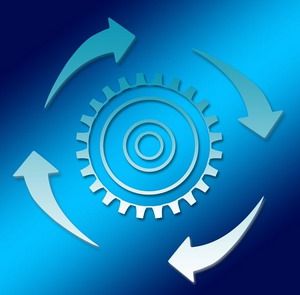 eas that react first to the low hormone issues. Why is this? It is because 80% of the inactive T4 hormone from the thyroid does not get changed into the active T3 form until it gets to the tissue that needs it. For various reasons the T4 may not convert to the active T3 at a particular tissue, resulting in low thyroid hormone just in that area. A blood test of your hormone levels might be fine in general for the body but you can still have pockets of low thyroid hormone in specific areas. eas that react first to the low hormone issues. Why is this? It is because 80% of the inactive T4 hormone from the thyroid does not get changed into the active T3 form until it gets to the tissue that needs it. For various reasons the T4 may not convert to the active T3 at a particular tissue, resulting in low thyroid hormone just in that area. A blood test of your hormone levels might be fine in general for the body but you can still have pockets of low thyroid hormone in specific areas.
The goal of this newsletter is to show you how diffi cult it is to diagnose what is going on with the average patient based on their symptoms. You might have only one symptom, a few symptoms, or dozens of symptoms. All of these situations will produce a wild variety of diagnoses. With scads of lab tests and other mystical procedures, we can narrow down the possible causes of your conditions, but it is challenging. Most doctors in today’s fast-paced clinical settings do not have the time to do this. That is why I believe so many people are walking around with a variety of undiagnosed conditions. The body is complex. When one part goes haywire, it triggers other parts to go haywire. For instance, my Hashimoto’s thyroiditis years ago was triggered by a leaky gut condition. Once I cleared up the gut issue, the thyroid disease went away. cult it is to diagnose what is going on with the average patient based on their symptoms. You might have only one symptom, a few symptoms, or dozens of symptoms. All of these situations will produce a wild variety of diagnoses. With scads of lab tests and other mystical procedures, we can narrow down the possible causes of your conditions, but it is challenging. Most doctors in today’s fast-paced clinical settings do not have the time to do this. That is why I believe so many people are walking around with a variety of undiagnosed conditions. The body is complex. When one part goes haywire, it triggers other parts to go haywire. For instance, my Hashimoto’s thyroiditis years ago was triggered by a leaky gut condition. Once I cleared up the gut issue, the thyroid disease went away.
With this understanding of how complex the body is,  you can appreciate how much of healing is really trial and error testing to find out what works for you. Your typical doctor cannot do this for you due to time constraints. That is why I say that health is really a do-it-yourself project. What that looks like might take one or more newsletters to describe. In the mean time, just keep at it and find what works for you! you can appreciate how much of healing is really trial and error testing to find out what works for you. Your typical doctor cannot do this for you due to time constraints. That is why I say that health is really a do-it-yourself project. What that looks like might take one or more newsletters to describe. In the mean time, just keep at it and find what works for you!
Take care,
David
Ellen has decided to share some of her thoughts and
 feelings that reflect the type of self work she does to be able to clear herself of old unhelpful beliefs. feelings that reflect the type of self work she does to be able to clear herself of old unhelpful beliefs.
My Second Letter
4/6/25
Most Americans believe there are ‘God-given rights’ and things we are ‘entitled’ to. I embraced these concepts and used them to destroy my relationship with my family. With all my heart, I believed I was entitled to have a mother who wanted me, found value in me, and supported me. I spent a lifetime trying to be ‘most important‘ to gain her attention and love with no success. I received enough attention because my grandmother, who we lived with, met my basic survival needs. My unmet needs drove me to anger and resentment toward the world. I closed my heart and refused to receive or desire a connection to her, my father, and everyone. I shut down my feelings because everything felt like pain. I focused on survival with the hope that someday I could make her want me while maintaining my separation, anger, and demand on a feeling level. Everything started to shift when I began connecting to David and his wisdom. He explained to me that my mother was not emotionally mature enough to want to participate with children. As children do, I believed my mother did not want me, and I was unable to let the feeling go. (I was taking my rejection personally) The understanding helped me on a head level but did not release the sense of ‘entitlement‘ to have what I believed to be only ‘right.’ My healing finally came from recognizing and feeling that ‘right‘ meant ‘it was right for me,” NOT right for the real world.’
|
| Gut health for stroke
A stroke messes up the gut microbiome because of 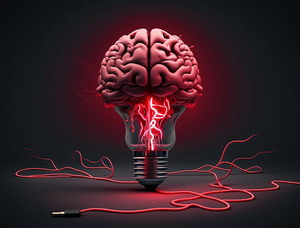 how much the brain controls the gut. But a healthy microbiome produces certain chemicals (ARH ligands) that control inflammation in the brain thus limiting the damage caused by the stroke. So quickly rebuilding a healthy gut is vital for stroke patients. how much the brain controls the gut. But a healthy microbiome produces certain chemicals (ARH ligands) that control inflammation in the brain thus limiting the damage caused by the stroke. So quickly rebuilding a healthy gut is vital for stroke patients.
More
___________________________
“Positivity is built out of who you are, negativity is built out of what you have and don’t have. There is no lack in who you are, simply unmanifest abilities. Conversely there are never enough possessions to fill the inner void.“~David DeLapp
_____________________________________
Difficulty hearing in a crowd? Tap!
Some interesting research has discovered that tapping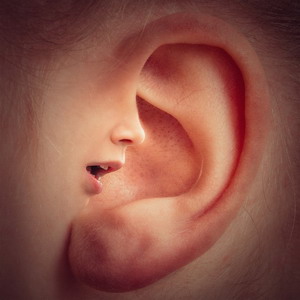 your fingers at around two beats per second (1.8 Hz) increases your ability to understand speech in a noisy environment. your fingers at around two beats per second (1.8 Hz) increases your ability to understand speech in a noisy environment.
More
____________________________
“Creativity: The essence of creativity is the willingness to not know and the drive to experiment to find out. There is no creativity when dealing with the fixed or established known. Creativity appears when you step outside the box of already existing forms and play with something new. “
~David DeLapp
________________________________________
B12 for brain health
B12 has long been known for its beneficial effects on brain health. However new research is finding that as we ag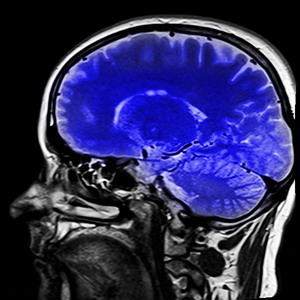 e we may need more B12 than is currently recommended for body health. The article suggests that in an older patient showing cognitive decline that B12 should be supplemented. e we may need more B12 than is currently recommended for body health. The article suggests that in an older patient showing cognitive decline that B12 should be supplemented.
More
________________________
“Respect requires us to allow people to experience their suffering without us trying to change or fix it. Their suffering is their perfect creation to help them detach from beliefs that are blocking their path to God.“
~David DeLapp
|
|
|
|
|

